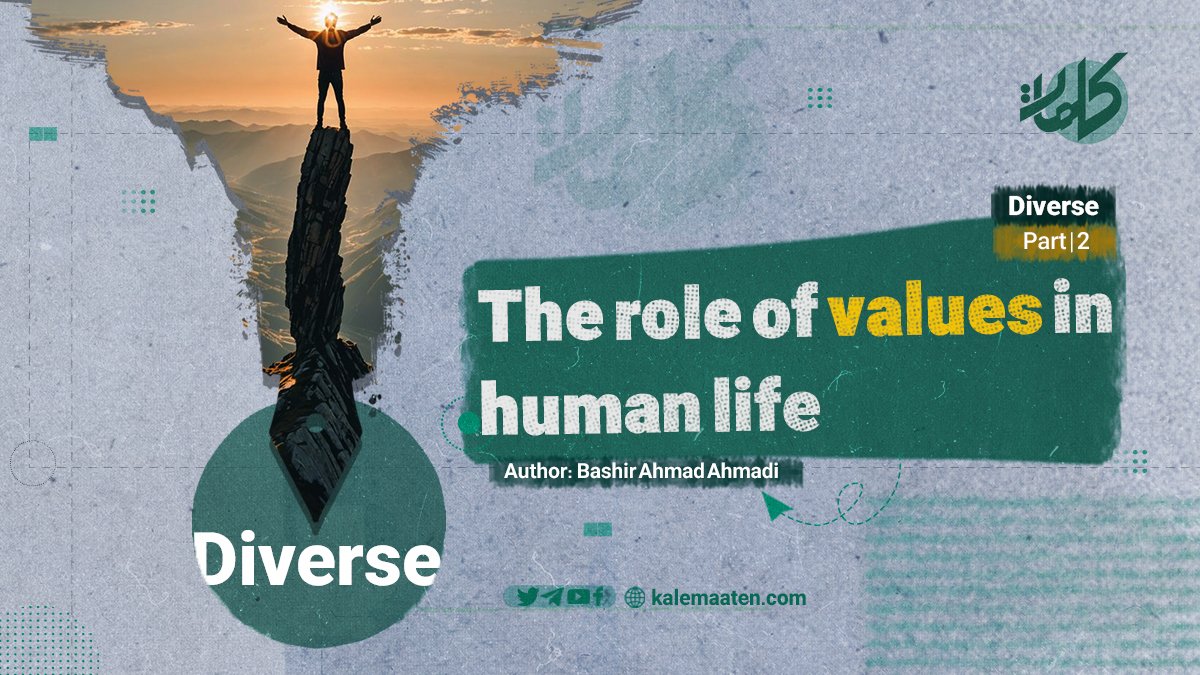
Author: Bashir Ahmad Ahmadi
The Role of Values in Human Life (The 2nd and Final Part)
How and on what basis are values determined?
Is the value of an action the same for all people or not?
The worldview of humans plays the most important role in determining values. That is, a person’s view of the universe, man, and life determines the purpose of his life. This person values his actions based on his purpose. For example, a capitalist, according to his worldview, sees happiness in utilizing more of the world’s resources, and benefit is the basis of his thinking. Therefore, he determines the value of his actions on this basis, and anything that helps him achieve his goal is considered valuable.
On the contrary, any action that is not related to his goal will be deemed futile. For instance, trying to acquire wealth is a valuable act for a capitalist, even if this effort distances him from his morals, family, and friends. He is willing to sacrifice many years of his life to acquire wealth; however, taking care of his elderly father, who is no longer able to work, is viewed as a futile act and has no value to him. Therefore, he may choose to send him to a nursing home.
Similarly, every person who lives on Earth values his actions according to his worldview. The religion of Islam, which was revealed by Allah (SWT) to accurately outline the worldview of humans, also serves as the greatest religion in the world by clarifying the value of actions for a person who adheres to this worldview. A principled Muslim who has a correct Islamic worldview and is rationally convinced of his creation, his duties in this world, and what the end entails, considers the world to be a place of suffering and divine testing. He views the goal of his life as achieving the satisfaction of Allah Almighty. As a result, any action that brings satisfaction to Allah (SWT) will be deemed valuable, while any action that incurs Allah’s (SWT) wrath will be regarded as worthless.
This understanding is why a Muslim may fast during the long, hot days of summer—even when there is no material benefit for him—give charity from his wealth, or turn away from looking at non-mahram individuals. The satisfaction of Allah (SWT) is derived from performing these actions, which makes them valuable to him.
It is worth mentioning that man-made systems, each of which has a specific worldview, have set the goals of humanity in the short term within a world that will eventually perish. Because humans play a role in determining values, they have always been influenced by time, place, and environment. Intellectual limitations and the surge of instincts directly interfere in this matter. For this reason, values have changed throughout history and continue to evolve.


